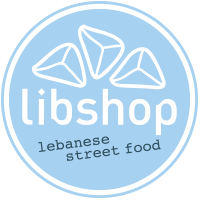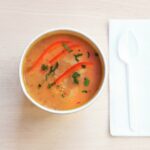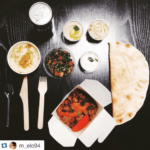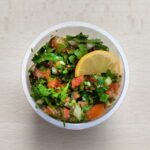At Libshop, we work every day to ensure that our dishes are healthy, healthy and tasty. To achieve this, we rely on the fundamentals of Lebanese cuisine and more generally of mediterranean diet, also called “Cretan diet”, whose virtues are no longer to be proven.
A diet praised by scientists
It was in the middle of the 20th century that scientists began to take an interest in the Mediterranean diet. Indeed, it was found that people who lived around the Mediterranean had an overall longer life expectancy and better health than people in other parts of the world.
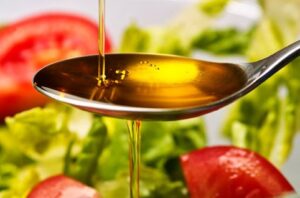
It was the American doctor Ancel Key who was the first to establish a major link between diet and cardiovascular disease. Cretan men, for example, had an exceptionally low rate of death from cardiovascular disease, despite moderate to high fat consumption.
✨
At the house of Libshop, we are specialized in the manufacture artisanal of mezzes, shawarma, falafel, Lebanese-inspired dishes and pastries for more than 10 years.
👉 Book your table at one of the Libshop restaurants in Paris
👉 Order Libshop for click & collect or delivery
✨
Other studies that appeared in the 1970s confirmed this trend, until the Lyon Diet Heart Study, who pragmatically tested the Cretan diet on heart patients, which led to a dramatic drop (-70 %) in all-cause mortality.
The most positive impact seems to be a decrease in overall mortality, especially cardiovascular and cancer (…) due to the improvement of risk factors (..): obesity, arterial hypertension.
In addition to the virtues listed above, the Mediterranean diet could help maintain a healthy brain. It would allow reduce the risk of developing Alzheimer's disease and Parkinson's disease by about one-fifth.
And the benefits do not stop: it would promote the longevity, would promote the reduction of bad cholesterol levels, would facilitate the success of assisted fertilization, and increase physical fitness. Taken during pregnancy, it would protect future children from asthma and allergies,
The characteristics of the Cretan diet: healthy and festive
Relatively shared by most of the countries bordering the Mediterranean Sea, this diet is characterized by a high consumption of fruits, vegetables, cereals and olive oil and a low consumption of meat and dairy products.
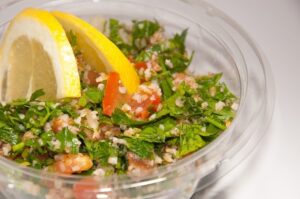
It is thanks to its richness in vegetable proteins and in antioxidants that this diet would be healthy and dietary.
While the cuisines are obviously not all the same across the Mediterranean countries, certain fundamentals have made it possible to identify the flagship foods of the Mediterranean diet:
- A high proportion of monounsaturated fats: in other words, olive oil.
- Legumes (lentils, beans, chickpeas, broad beans, peas, etc.)
- Cereals (preferably wholegrain, wheat, rice, corn, barley, wheat, etc.), fruits, nuts, and plants.
- Lemon, garlic and onion, accompanied by many herbs (basil, fresh coriander, parsley, thyme, rosemary, oregano, chives, dill, etc.) and spices (cumin, coriander seeds, cinnamon, nutmeg, chilli, etc.).
- A low consumption of dairy products, which will be taken in the form of fermented milk.
- Low consumption of red meat, to which we prefer White meat.
“We don't sit at the table to eat but to eat together. »
Plutarch
And it is through its medical virtues and its diversity of dishes that this diet has now become famous. So, the doctor Ancel Keys will describe the Mediterranean meal as “shared delights”, eating together being a fundamental component of the Mediterranean “lifestyle”.
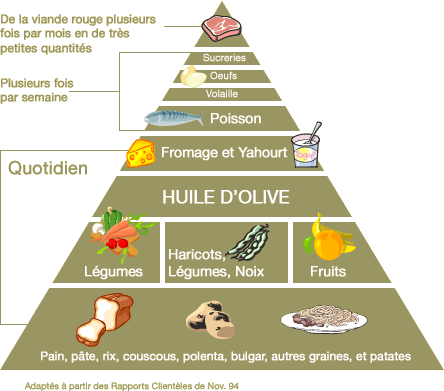
Today, the Mediterranean diet is talked about in the media, arouses the interest of scientists, nutritionists, food enthusiasts and organizations working in many branches of knowledge.
The Cretan diet, the basis of the Libshop menu
It is by taking up the traditional Lebanese dishes that we intend to promulgate every day this oh so deserving diet, which allows the Lebanese men and women to be in good physical shape.

Their dishes, our dishes, are cooked every day with fresh produce, starting with lentils, which we use for our famous coral lentil soup.
Chickpeas and broad beans, essential to our creamy hummus enhanced with beneficial olive oil.
The eggplant we use for our vegetable 100% eggplant caviar.
Bulgur, now famous for its nutritional contribution.
Lemon, onions and wheat for our Lebanese tabbouleh, a real concentrate of protective antioxidants.
Broccoli, carrots, and other vegetables used in our boxes.
Our full-fat 0% Greek yogurt.
Not to mention our box based on chicken breast and vegetables, for which many athletes among our customers have given themselves the word...
Does Libshop allow me to eat better?
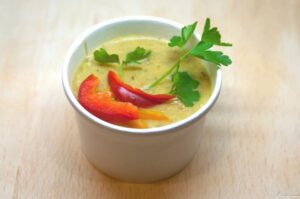
Yes. Depending on what you order, the dishes at Libshop are suitable for both athletes and people wishing to control their line.
Obviously, some products on our menu do not fall within the strict framework of the Mediterranean diet (sweet desserts, fried products, etc.).
But the majority of the ingredients we use and products fit this diet, and were entirely inspired by the recipes of our Lebanese aunts and grandmothers.
Our leitmotif is clear: healthy, healthy, healthy food. Through our soup, our vegetarian mezes, our bulgur flavored with tomato and lemon, and our sandwiches wrapped in thinned bread, we make sure that your meal is as much a pleasure as a real beneficial cure.
Sources
